Research
Our researchers are a reflection of CISeAL's permanent effort to invest its best resources and human talent
in the pursuit of wellbeing for those who need it the most.
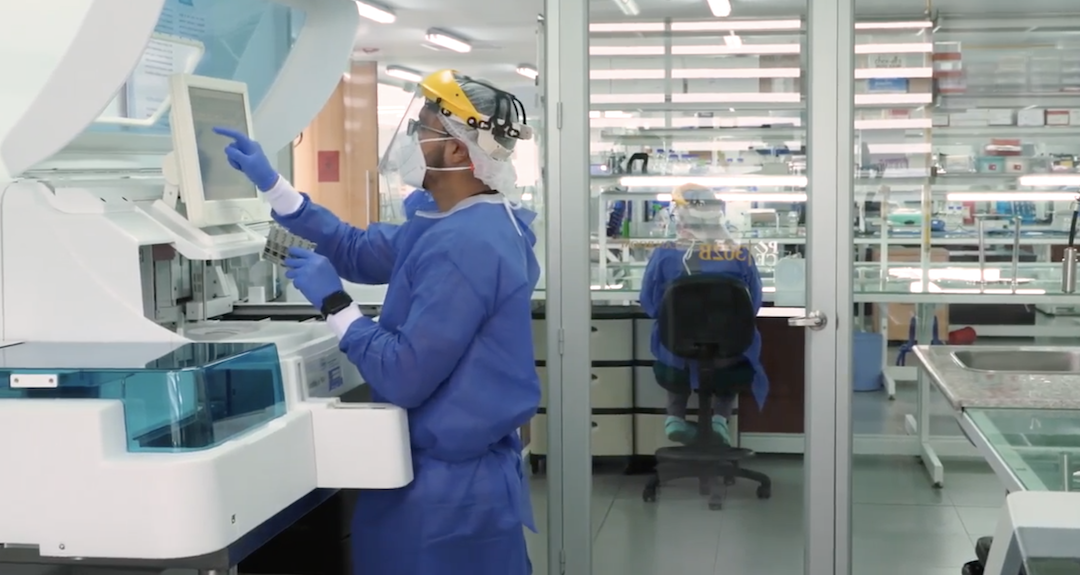
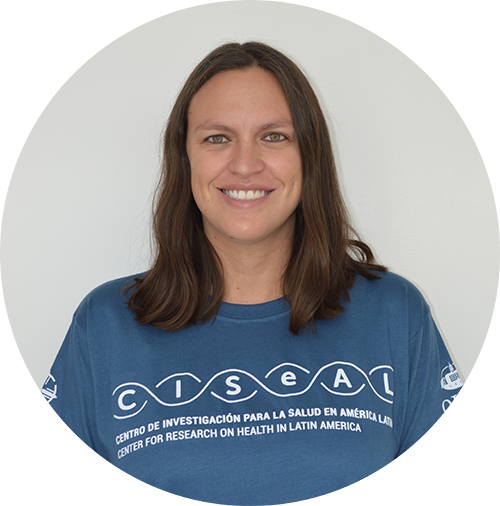
Luciana Armijos, M.D.
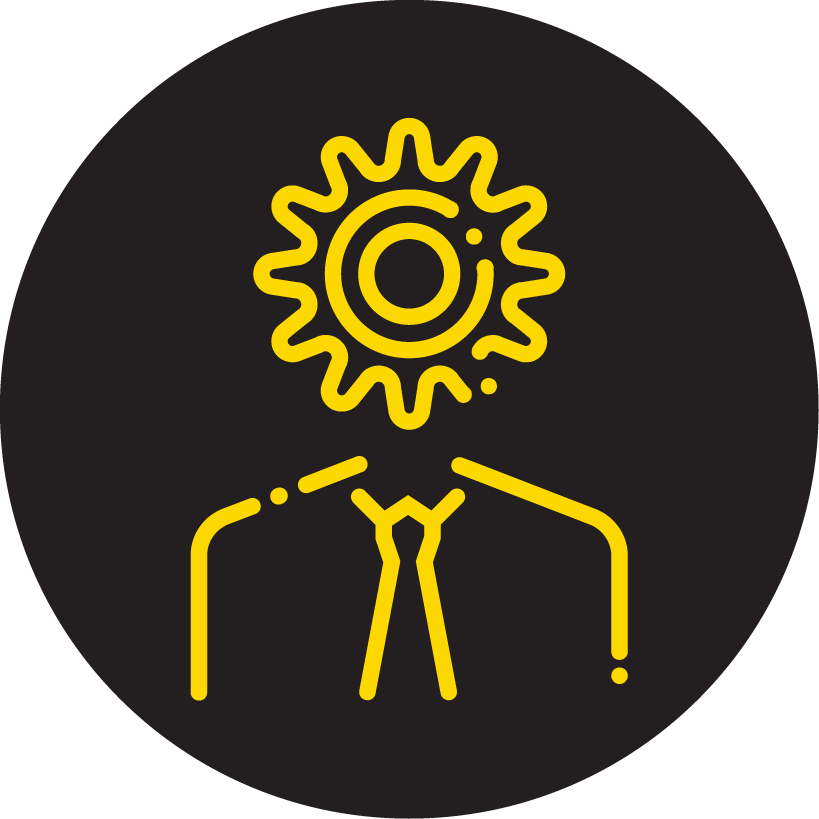 Education:
Education:
- 2017. Master in Public Health. Johns Hopkins Bloomberg School of Public Health. USA. Speciality: Health Systems and Policies.
- 2017. Certificate in Applied Epidemiology. Johns Hopkins Bloomberg School of Public Health. USA.
- 2013. Doctor in Medicine. Universidad Complutense de Madrid, España. Integrated Master in Medical Research.
 Current position:
Current position:
- Adjunct Investigator to the group of Dr. Ruth Jimbo-Sotomayor at the Center for Research on Health in Latin America.
- Consultant at Corporación Andina de Fomento – CAF.
- Postgraduate Professor, School of Medicine. Pontificia Universidad Católica del Ecuador.
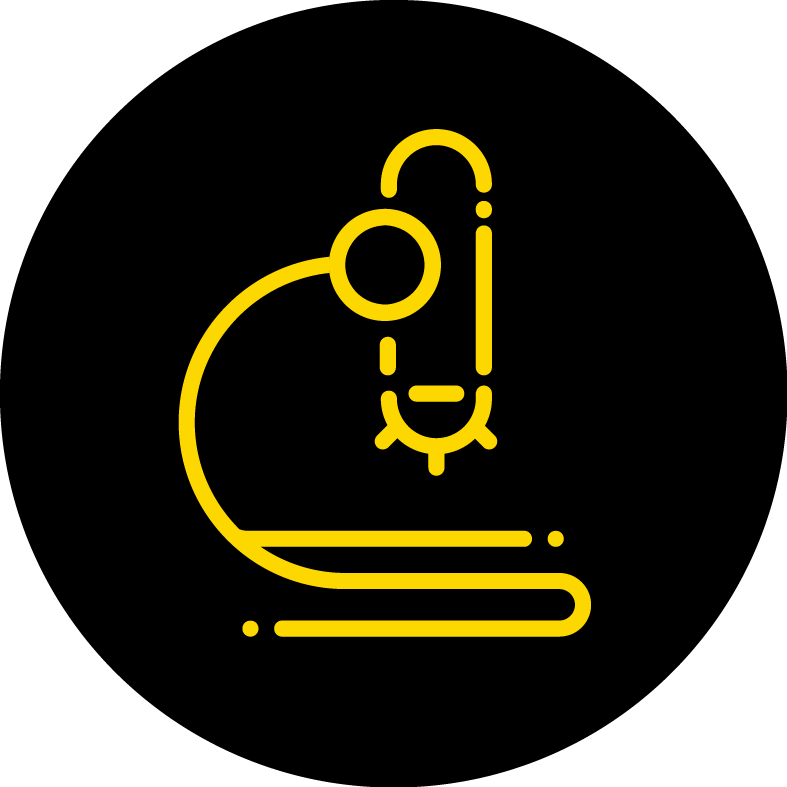 Current research (PUCE): Health and Vulnerable Groups.
Current research (PUCE): Health and Vulnerable Groups.
 Recent publications:
Recent publications:
- Armijos, L., Tello, B., Sevilla, C., Cano, I., Fonseca, J., Vivas, L., Rivadeneira, M., Jimbo, R., Sánchez, X., Santillán, N., Espín, I. (2022). Development of a web-based tool –The Score Bebé ®– for enhancing neonatal risk stratification: A nationwide retrospective study. In: Jay Kalra and Nancy Lightner (eds) Healthcare and Medical Devices. AHFE (2022) International Conference. AHFE Open Access, vol 51. AHFE International, USA. http://doi.org/10.54941/ahfe1002102
- Jimbo-Sotomayor, R., Watts, E., Armijos, L., Sriudomporn, S., Sánchez, X., Echeverria, A., Whittembury, A., Patenaude, B. (2022). Return on Investment of 10-Valent Pneumococcal Conjugate Vaccine in Ecuador From 2010 to 2030. Value in Health Regional Issues 31, 148-154. doi:https://doi.org/10.1016/j.vhri.2022.05.003
- Acosta-Vargas, P., Dueñas-Espín, I., Armijos, L., Fonseca, J., Santillán, N., Jimbo, R., Rivadeneira, M.F., Xánchez, X., Sevilla, C., Tello, B. and Vivas, L. (2021). Challenges of Web Accessibility in a Health Application to Predict Neonatal Mortality – The Score Bebe ®. In: Nunes I.L. (eds) Advances in Human Factors and System Interactions. AHFE 2021. Lecture Notes in Networks and Systems, vol 265. Springer, Cham. https://doi.org/10.1007/978-3-030-79816-1_30
- Dueñas-Espín I, Armijos-Acurio L, Espín E, Espinosa-Herrera F, Jimbo R, León-Cáceres Á, et al. (2021) Is a higher altitude associated with shorter survival among at-risk neonates? PLoS ONE 16(7): e0253413. https://doi.org/10.1371/journal.pone.0253413
- Moreno Roca, A., Armijos Acurio, L., Jimbo Sotomayor, R., Céspedes Rivadeneira, C., Rosero Reyes, C. & López Ayala, C. (2021). Cohort study of the overall survival of patients with pancreatic cancer in a hospital of specialties of Quito-Ecuador in the period 2007–2017. Innovative Surgical Sciences, (). https://doi.org/10.1515/iss-2020-0030
- Sánchez, X., Orrico, M., Morillo, T., Manzano, A., Jimbo, R. and L. Armijos (2021). Reducing unnecessary antibiotic prescription through implementation of a clinical guideline on self-limiting respiratory tract infections. PLOS ONE 16(4): e0249475. https://doi.org/10.1371/journal.pone.0249475
- García, M., Acurio, M. L. A., Sotomayor, R. J., Sanchez, X., & Guijarro, S. (2019). Analysis of births, abortions and maternal mortality in adolescents in Ecuador from 2013 to 2016. International Journal of Pediatrics and Adolescent Medicine. https://doi.org/10.1016/j.ijpam.2019.07.002
- Choez, X. S., Acurio, M. L. A., & Sotomayor, R. E. J. (2018). Appropriateness and adequacy of antibiotic prescription for upper respiratory tract infections in ambulatory health care centers in Ecuador. BMC Pharmacology and Toxicology, 19(1), 1-11. https://doi.org/10.1186/s40360-018-0237-y
- Ortiz-Prado, E., Castillo, T. A., Olmedo-López, M., Armijos, L., Ramírez, D., & Iturralde, A. L. (2018). Cesarean section rates in Ecuador: a 13-year comparative analysis between public and private health systems. Revista Panamericana de Salud Pública, 41, e15. https://doi.org/10.26633/RPSP.2017.15
- Pesántez-Ríos, G., Armijos-Acurio, L., Jimbo-Sotomayor, R., Pascual-Pascual, S. I., & Pesántez-Cuesta, G. (2017). Cannabidiol: uso en epilepsias refractarias. Rev. neurol.(Ed. impr.), 157-160. https://pesquisa.bvsalud.org/portal/resource/pt/ibc-166091
- Armijos, L., Escalante, S., & Villacrés, T. (2017). La evaluación de tecnologías sanitarias en el Ministerio de Salud Pública de Ecuador como herramienta para la compra de medicamentos entre 2012 y 2015. Revista Panamericana de Salud Pública, 41, e50. https://www.scielosp.org/article/rpsp/2017.v41/e50/es/
- Ortiz-Prado, E., Ponce-Zea, J., Ramirez, D., Stewart-Ibarra, A. M., Armijos, L., Yockteng, J., & Cárdenas, W. B. (2016). Rabies epidemiology and control in Ecuador. Global journal of health science, 8(3), 113. doi: 10.5539/gjhs.v8n3p113
 Orcid: http://orcid.org/0000-0001-8881-1892
Orcid: http://orcid.org/0000-0001-8881-1892
ResearchGate: https://www.researchgate.net/profile/Maria_Armijos
Marco Neira, PhD.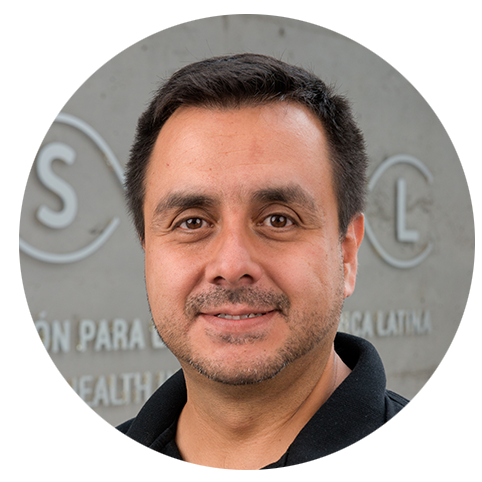
Biology, Physiology, and Control of Mosquitoes (Diptera: Culicidae) of medical interest
 Education:
Education:
- 2013 - 2015. Postdoctoral fellow Fogarty International Center (National Institutes of Health), D43 Training Grant.
- 2009 - 2010. Postdoctoral fellow. Vector Group. Liverpool School of Tropical Medicine.
- 2005 - 2009. Postdoctoral fellow.The Whitney Laboratory. University of Florida, St. Augustine, Florida.
- 2005. PhD. in Biological Sciences. Ohio University, OH, USA.
- 2001. Master in Arts. International Development Affairs – Health Concentration. Ohio University, OH, USA.
- 1999. Bachelor in Biology. Pontificia Universidad Católica del Ecuador.
 Current position:
Current position:
- Adjunct researcher to the group of Dr. Anita Villacís.
 Recent publications:
Recent publications:
- Sippy, R., Rivera, G.E., Sanchez, V., ... and Neira, M. (2020). Ingested insecticide to control Aedes aegypti: developing a novel dried attractive toxic sugar bait device for intra-domiciliary control. Parasites Vectors 13, 78. https://doi.org/10.1186/s13071-020-3930-9
- Pilaquinga, F., Morejón, B., Ganchala, D., Morey, J., Piña, N., Debut, A. & Neira M. (2019). Green synthesis of silver nanoparticles using Solanum mammosum L. (Solanaceae) fruit extract and their larvicidal activity against Aedes aegypti L. (Diptera: Culicidae). PLOS ONE 14(10): e0224109. https://doi.org/10.1371/journal.pone.0224109
Libros
- Anita G. Villacís, Fabián E. Sáenz, Marco V. Neira, Mario J. Grijalva. 2018. Ecosalud en las enfermedades transmitidas por vectores: Chagas, Dengue y Malaria. Tercer tomo (Ciencia de la Salud). La Medicina Ecuatoriana en el siglo XXI. Academia Ecuatoriana de Medicina Universidad Andina Simón Bolívar, Corporación Editora Nacional, editor Jaime Breilh.
 Orcid: http://orcid.org/0000-0001-8068-5772
Orcid: http://orcid.org/0000-0001-8068-5772
ReseachGate: https://www.researchgate.net/profile/Marco_Neira
Our researchers are a reflection of CISeAL's permanent effort to invest its best resources and human talent in the pursuit of wellbeing for those who need it the most.

Ana María Gómez, M.D.
Evidence-Based Medicine applied to Infectious Diseases / HIV virus resistance.
 Education:
Education:
- 2019 - currently. Ph.D. in Health Sciences, European University of Madrid. Madrid Spain.
- 2019. Fellowship in Infectious Diseases and HIV. Hospital Germans Trias i Pujol, Foundation for the Fight Against AIDS. Barcelona, Spain.
- 2019. Master in Infectious Diseases and Antimicrobial Treatment. Cardenal Herrera University. Valencia, Spain.
- 2019. Master in University Education. European University of Madrid, Spain.
- 2018. Training - Internship hands-on Infectious Diseases / HIV / Transplant. University of Illinois Hospital. USA.
- 2018. Diploma in Scientific Research Methodology. Universidad San Francisco de Quito, Ecuador.
- 2017. Master in HIV infection. Rey University Juan Carlos. Madrid, Spain.
- 2016. Speciality in Internal Medicine. Pontificia Universidad Católica del Ecuador.
- 2010. Medicine. Pontificia Universidad Católica del Ecuador.
 Current position:
Current position:
- Associate Investigator to the group of Dr. Ruth Jimbo-Sotomayor at the Center for Research on Health in Latin America.
- Assistant Professor School of Medicine. Pontificia Universidad Católica del Ecuador.
- Associate Researcher, One Health-Research Group. Universidad de las Américas, Quito Ecuador.
- Member of the scientific committee of the Municipality of Quito, for decision-making during the health emergency due to COVID-19. Quito Ecuador.
- Attending Physician of Internal Medicine. Novaclinica and Atlas Clinic. Quito Ecuador.
 Current research (PUCE): Health and Vulnerable Groups.
Current research (PUCE): Health and Vulnerable Groups.
 Recent publications:
Recent publications:
- López-Cortés, A., Guevara-Ramírez, P., Kyriakidis, N. C., Barba-Ostria, C., León Cáceres, Á., Guerrero, S., Ortiz-Prado, E., Munteanu, C. R., Tejera, E., Cevallos-Robalino, D., Gómez-Jaramillo, A. M., Simbaña-Rivera, K., Granizo-Martínez, A., Pérez-M, G., Moreno, S., García-Cárdenas, J. M., Zambrano, A. K., Pérez-Castillo, Y., Cabrera-Andrade, A., … Paz-y-Miño, C. (2021). In silico Analyses of Immune System Protein Interactome Network, Single-Cell RNA Sequencing of Human Tissues, and Artificial Neural Networks Reveal Potential Therapeutic Targets for Drug Repurposing Against COVID-19. Frontiers in Pharmacology, 12, 598925. https://doi.org/10.3389/fphar.2021.598925
- Ortiz-Prado, E., Simbaña-Rivera, K., Gómez-Barreno, L., Rubio-Neira, M., Guaman, L. P., Kyriakidis, N. C., ... & López-Cortés, A. (2020). Clinical, molecular and epidemiological characterization of the SARS-CoV2 virus and the Coronavirus disease 2019 (COVID-19), a comprehensive literature review. Diagnostic microbiology and infectious disease, 115094. https://doi.org/10.1016/j.diagmicrobio.2020.115094
- López-Cortés, A., Guevara-Ramírez, P., Kyriakidis, N. C., Barba-Ostria, C., Cáceres, Á. L., Guerrero, S., ... & Paz-y-Miño, C. (2020). In Silico Analyses of Immune System Protein Interactome Network, Single-Cell RNA Sequencing of Human Tissues, and Artificial Neural Networks Reveal Potential Therapeutic Targets for Drug Repurposing Against COVID-19. ChemRxiv. Preprint. https://doi.org/10.26434/chemrxiv.12408074.v1
- Houck, K. M., Terán, E., Ochoa, J., Zapata, G. N., Gomez, A. M., Parra, R., ... & Thompson, A. L. (2019). Drinking water improvements and rates of urinary and gastrointestinal infections in Galápagos, Ecuador: Assessing household and community factors. American Journal of Human Biology, 32(1), e23358. https://doi.org/10.1002/ajhb.23358
 Orcid: https://orcid.org/0000-0003-2180-7316
Orcid: https://orcid.org/0000-0003-2180-7316
ResearchGate: https://www.researchgate.net/profile/Ana_Maria_Gomez_Jaramillo
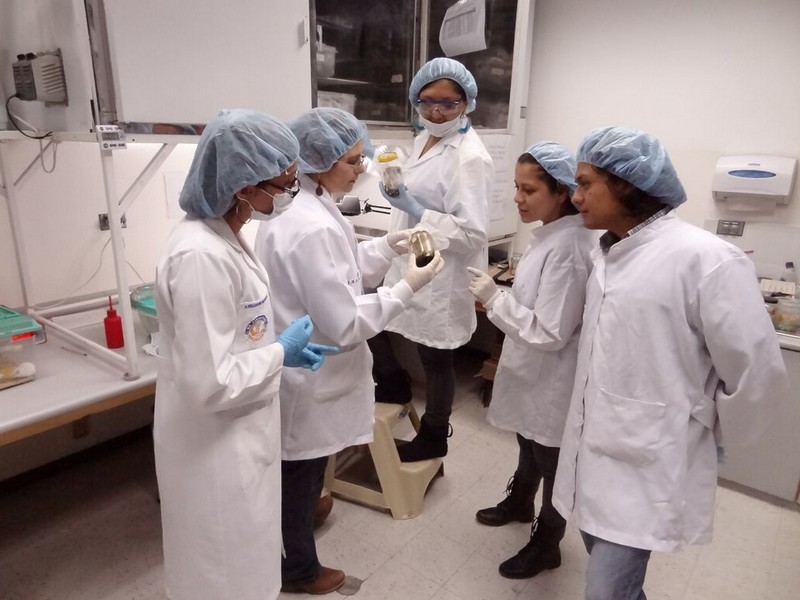 The summer program on Research on Tropical Diseases is the result of over 18 years of joint efforts from Ohio University’s Infectious and Tropical Disease Institute (ITDI) and Pontifical Catholic University of Ecuador (PUCE). Both institutions jointly operate CISeAL in Nayón campus.
The summer program on Research on Tropical Diseases is the result of over 18 years of joint efforts from Ohio University’s Infectious and Tropical Disease Institute (ITDI) and Pontifical Catholic University of Ecuador (PUCE). Both institutions jointly operate CISeAL in Nayón campus.Following their research principles, ITDI and CISeAL aim at reaching impoverished populations at risk of contracting Chagas and other health conditions pertaining to their context, through first-class technology and training. Since 2000, our group of biologists, entomologists, and experts in public health and development has conducted research on Chagas disease transmission cycle in almost every province in Ecuador.
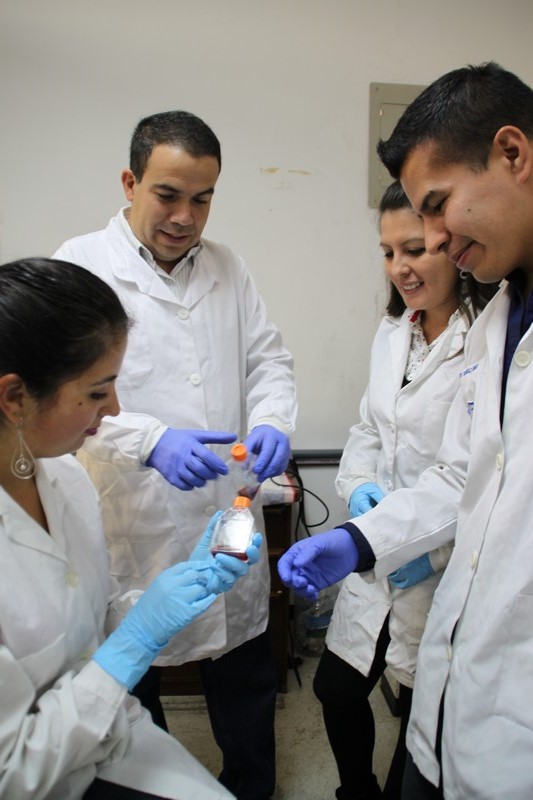 As part of CISeAL’s research activities, the Healthy Living Initiative was created in 2009 with a 10-year perspective to promote the socioeconomic development of communities in provinces of Loja and Manabí.
As part of CISeAL’s research activities, the Healthy Living Initiative was created in 2009 with a 10-year perspective to promote the socioeconomic development of communities in provinces of Loja and Manabí.Our researchers have strong collaboration networks around the world and work closely with some of the most outstanding researchers in their fields, who are also part of our team of external researchers:

Angélica Quintero-Florez, PhD.
Collaborates with: Priscila Maldonado, PhD(c).
Current positions:
-
Research Teaching Staff, Department of Preventive Medicine and Public Health of the Universidad de Sevilla, Spain.
-
Research Collaborator, Instituto Universitario Vive Sano, Brazil.
Research interests:
Technology and food safety / Bioactive Compounds / polyphenols / extra virgin olive oil / in vitro digestion and bioaccessibility / sensory analysis / development of new products / functional foods / Public Health / Nutritional Epidemiology
Relevant links:
Universidad de Sevilla / ORCID / Scholar / Scopus / ResearchGate

Benjamin Bates, PhD.
Collaborates with: Mario Grijalva, PhD.
Current positions:
-
Barbara Geralds Schoonover Professor of Health Communication in the School of Communication Studies, Ohio University, USA.
-
Affiliated faculty member in the Communication and Development Studies Program.
-
Affiliated researcher with the Infectious and Tropical Disease Institute, the Appalachian Rural Health Institute, and the Translational Biomedical Sciences doctoral program
Research interests:
Communication campaigns and messages on health / Rhetoric of Health / Communication, international health and development.
Relevant links:
Universidad de Ohio / ORCID / Scholar / ResearchGate

César Montalvo, PhD.
Collaborates with: Priscila Maldonado, PhD(c).
Current positions:
-
Postdoctoral Research Associate, Social and Decision Analytics, Biocomplexity Institute and Initiative, University of Virginia, USA.
Research interests:
Statistics interface, mathematical models and public policies.
Relevant links:
University of Virginia / Scholar

Daniel Neafsey, PhD.
Collaborates with: Fabian Sáenz, PhD.
Current positions:
-
Associate Professor of Immunology and Infectious Diseases, Harvard T.H. Chan School of Public Health, Boston, MA, USA.
-
Associate Director, Genomic Center for Infectious Disease, Broad Institute, Cambridge, MA, USA.
Research interest:
Evolutionary genomics and genomic epidemiology of Plasmodium malaria parasites and Anopheles mosquitoes.
Relevant links:
Neafsey Lab – Evolutionary Genomics of Malaria Parasites and Vectors / Scholar

Luciana Armijos, MD, MSc.
Collaborates with: Ruth Jimbo, PhD.
Current positions:
-
Consultant Corporación Andina de Fomento – CAF.
Research interest:
Emerging diseases / Health technologie assessment.
Relevant links:

Katherine Simbaña, MD, MSc.
Collaborates with: Ruth Jimbo, PhD.
Current positions:
-
Adjunct investigator at the Center for Research in Health in Latin America (CISeAL).
-
PhD student at Universidad de las Palmas de Gran Canaria, Spain.
-
Associate researcher level 3, accredited and categorized by the Secretaría de Educación Superior, Ciencia, Tecnología e Innovación (SENESCYT) No. REGINV-21-05106.
-
Scientific member of the Latin American Network for Cancer Research (LAN-CANCER), Lima-Perú.
-
Member of the Consejo de Asesores de la Asociación Científica de Estudiantes de Medicina - ASOCEM UCE.
-
Former National Director of Health Research of the Ministry of Public Health, Ecuador.
-
Member of the Scientific Comittee of the Red Iberoamericana Ministerial de Aprendizaje e Investigación en Salud (RIMAIS).
Research Interest:
Epidemiology / Public Health / Chronic degenerative diseases / Biomedicine / Oncology / Health technology assessment / One Health.
Relevant links:
ORCID / Scholar / ResearchGate
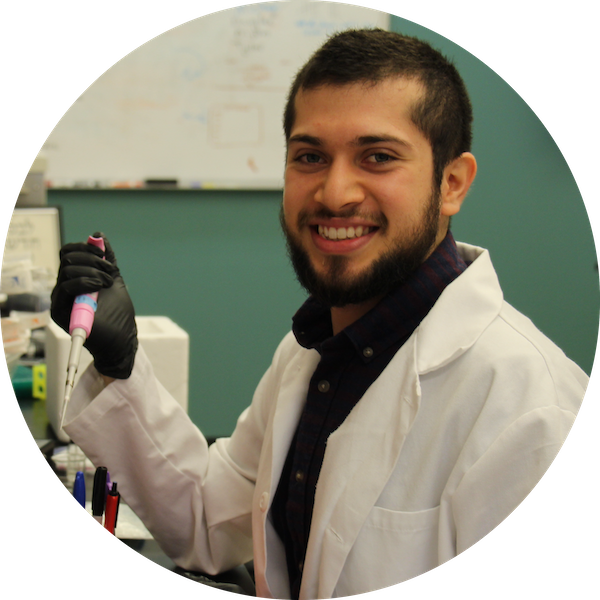
Manuel Fierro, PhD.
Collaborates with: Fabian Sáenz, PhD.
Current positions:
- Researcher at Clemson University, United States.
Research interest:
My research centers around how the deadliest causative agent of human malaria, Plasmodium falciparum, interphases with its host. I focus primarily on understanding the factors involved in protein export beyond the vacuolar compartment the parasite resides in, called the parasitophorous vacuole (PV).
Relevant links:
ORCID / LinkedIn / ResearchGate / NIH
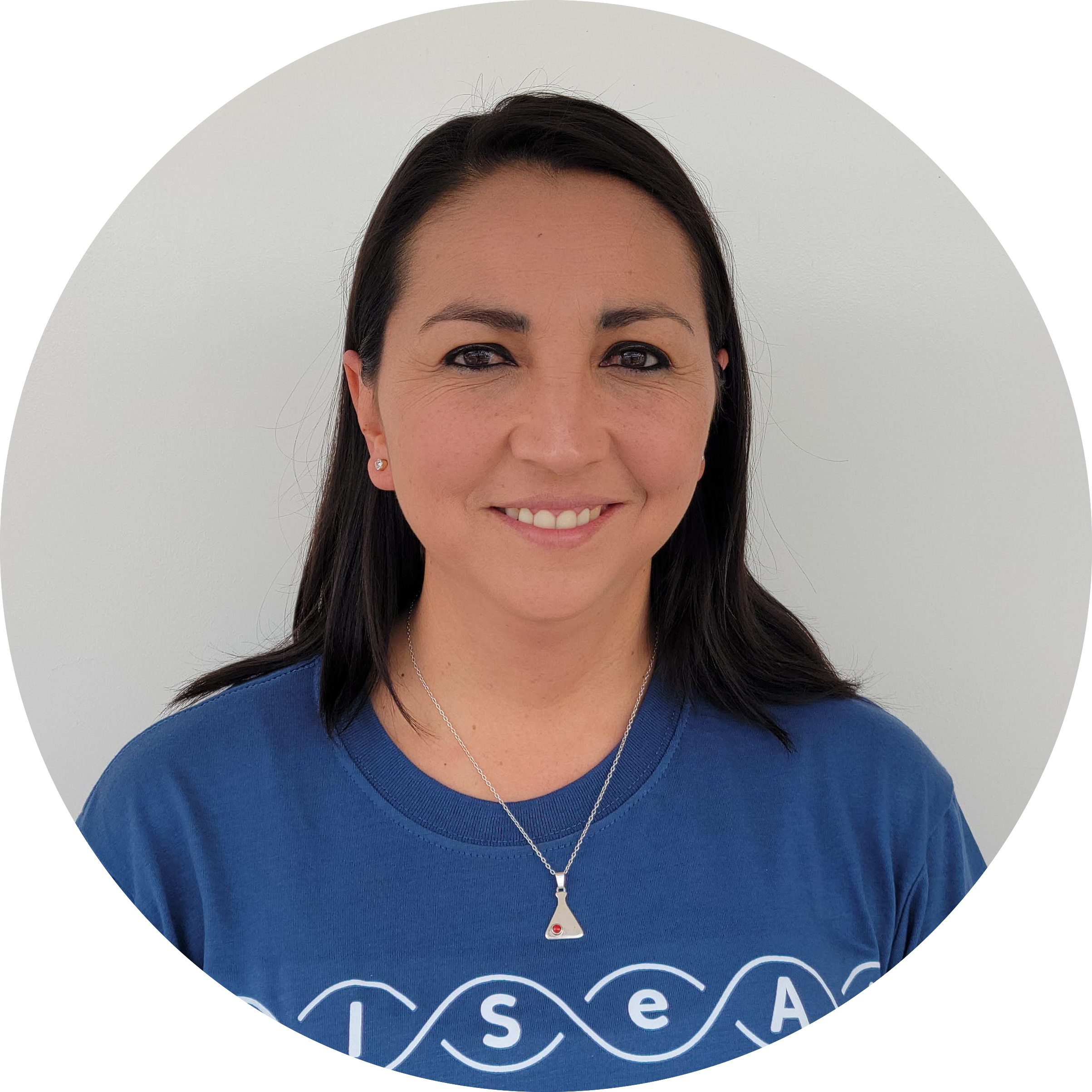
María José Andrade Cuvi, PhD.
Collaborates with: Priscila Maldonado, PhD(c).
Current positions:
- Professor of Food Engineering. College of Sciences and Engineering, Polytechnic. Universidad San Francisco de Quito.
- Researcher of the Vive Sano Network (Brazil). Experimental Nutrition Research Group.
Research interest:
Technology and food safety. Postharvest technology. Antioxidants. In vitro digestion and bioaccessibility. Sensory analysis. Development of new products. Functional Foods.
Relevant links:

Paola Carrillo-Bustamante, PhD.
Collaborates with: Anita Villacís, PhD.
Current positions:
- Staff member in the Vector Biology Unit of at Max Planck Institute for Infection Biology, Berlin, Germany.
Research interest:
My research focuses on the role of mosquito physiology, metabolism, and environment on the transmission success of malaria. I use bottom-up modelling approaches that integrate knowledge gained in field and laboratory settings into mathematical models of transmission and pathogen evolution. By quantifying how individual mosquito traits shape pathogen transmission in humans, I aim to identify novel mechanisms or misconceptions in the way transmission occurs. This is a unique approach that can identify novel mechanisms of transmission, showing immense potential for policy changes.
Relevant links:
Paola Carrillo-Bustamante / ResearchGate / ORCID / Scholar
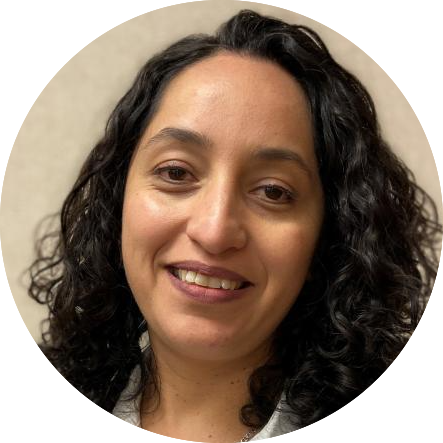
Raquel Marchan Rivadeneira, PhD.
Collaborates with: Fabián Sáenz, PhD.
Current positions:
- Assistant Investigator at the Edison Biotechnology Institute, Ohio University
- Research Assistant Professor at the Department of Biological Sciences, Ohio University
- Adjunct Faculty at the Translational Biomedical Sciences Program, Ohio University
- Adjunct Investigator to the group of Dr. Fabián Sáenz at the Center for Research on Health in Latin America, PUCE.
Research interest:
My current research in natural products drug discovery focuses on using genomic tools to characterize genetically biological diversity as a source for biotechnological innovation. In addition, my training as an evolutionary biologist focuses on assessing how the environment influences the genetic and morphological configuration of individuals and populations.
Relevant links:

Marco Neira, PhD.
Collaborates with: Anita Villacís, PhD.
Current positions:
- Research associate within Dr. Anita Villacís' group.
Research interest:
Biology, Physiology, and Control of Medically Important Mosquitoes (Diptera: Culicidae).
Relevant links:
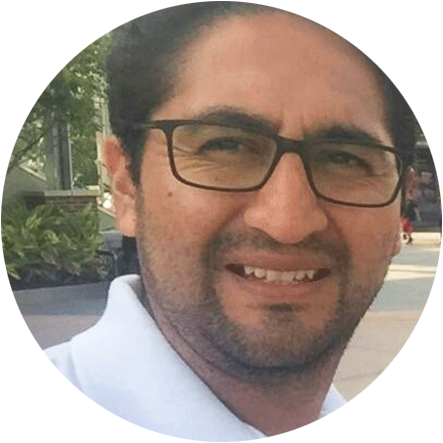
Jorge Reyes, PhD.
Collaborates with: Ruth Jimbo, PhD.
Current positions:
- Physician, Coordinator of Epidemiological Surveillance and Infectious Diseases at IESS Quito Sur Hospital.
- Undergraduate Teacher of Biochemistry and Pharmacy at the Central University of Ecuador.
- Postgraduate Instructor in Infectious Diseases at the Pontifical Catholic University of Ecuador.
Research interest:
Bacterial resistance, mobile genetic elements, appropriate antimicrobial use programs.
Relevant links:

María del Mar Pastor Bravo, PhD.
Collaborates with: Venus Medina, PhD
Current positions:
- Faculty and Research Staff at the Department of Nursing, University of Murcia.
- Vice Director of the School of Nursing in Cartagena.
- Quality Coordinator at the School of Nursing in Cartagena.
- Mobility Coordinator at the School of Nursing in Cartagena.
- Coordinator of the Master's Program in Health, Women, and Care at the Faculty of Nursing, University of Murcia.
Research interest:
Gender-based violence, harmful traditional practices affecting women, healthcare access and the health of the transgender population, Social Determinants of Health, and Intersectionality.
Relevant links:
Scholar / ORCID / ResearchGate / IMIB / The Conversation / LinkedIn / Bloomberg
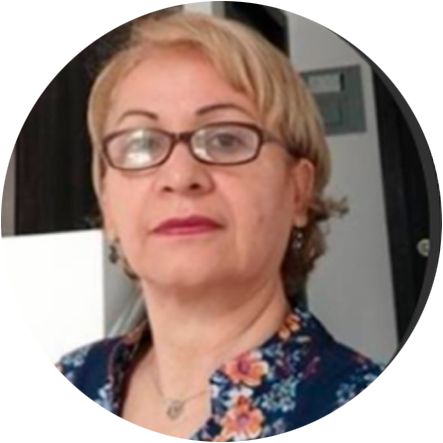
Esperanza Marbella Palencia Gutiérrez, PhD.
Collaborates with: Venus Medina, PhD
Current positions:
- Full Professor at the Pontifical Catholic University of Ecuador, Esmeraldas Campus.
- Accredited Researcher by SENECYT: Researcher Aggregated 2 - REG-INV-18-02539.
- Active member of the Network of Researchers and Scholars in Computer Science, Computing, and Society.
- Participant in the international project "100 Researchers from Latin America," organized by the International Community of Scholars in Informatics, Computing, and Knowledge Society (ICONS).
- Member of the Gender-Based Violence Prevention Research Group (E-previo) at PUCE, Quito, Ecuador.
Research interest:
Practice and Education in Nursing; Gender Violence Prevention.
Relevant links:
Scholar / ORCID / ResearchGate

Ismael Jimenez Ruiz, PhD.
Collaborates with: Venus Medina, PhD
Current positions:
- Permanent contracted professor of the Nursing Department.
- Vice Dean of Quality and Studies at the Faculty of Nursing, University of Murcia.
- Principal Investigator of the Advanced Nursing Care Research Group.
Research interest:
Aims to investigate and delve into, from various perspectives, the health determinants that disproportionately affect women's health processes. Focus on studying the multiple forms of violence against women.
Study of gender-based violence: causes, consequences, and prevention.
Harmful health practices for women based on culture, tradition, religion, and beliefs: Female Genital Mutilation.
Influence of gender-based beauty stereotypes on women's health.
Victimization of transgender individuals in childhood and adolescence.
Relevant links:
Scholar / ORCID / ResearchGate

Eugenia Mato Matute, PhD.
Collaborates with: Verónica Paez, PhD
Current positions:
- Researcher at CIBER-BBN, Endocrinology Group, IIB-Sant Pau. Hospital de la Santa Creu i Sant Pau
Research interest:
Biomedical, Biomaterials, and Nanomedicine.
Relevant links:
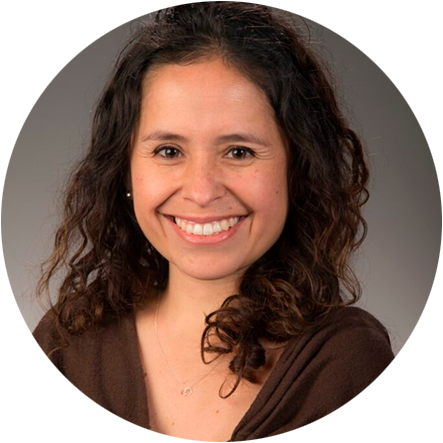
Claudia Nieto Sánchez, PhD.
Collaborates with: Esteban Baus, Mtr.
Current positions:
- Researcher in the Unit of Socio-Ecological Health Research (SEHR)/Department of Public Health and member of the Eco-Health Group at the Institute of Tropical Medicine in Antwerp.
Research interest:
Socio-ecological Health
Understanding the relationships between socio-spatial arrangements and vector-borne disease transmission, the impact of housing improvement and spatial modifications on sustainable control of infectious diseases, as well as emerging conceptualizations of community participation in global health research.
Relevant links:
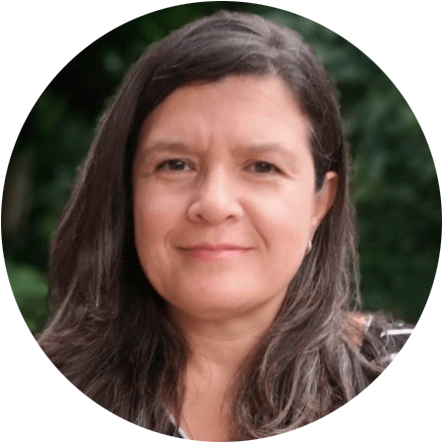
María Isabel Echavarría, MSc.
Collaborates with: Esteban Baus, Mtr.
Current positions:
- Coordinator of M&E (Monitoring and Evaluation) and Knowledge Translation at CIDEIM.
Research interest:
Identifying barriers and proposing solutions to problems related to the implementation of effective interventions and programs for the management and control of infectious diseases of poverty in Latin America and the Caribbean.
Relevant links:

Mike Penkunas, PhD.
Collaborates with: Esteban Baus, Mtr.
Current positions:
- Implementation scientist in global health, Researcher, trainer, and author, World Health Organization Consultant.
Research interest:
Passionate about using applied research to improve health outcomes.
Relevant links:
The Healthy Living Initiative (HLI) was born in 2009 to respond to the question: “how can long-term sustainable elimination of Chagas disease in southern Ecuador be achieved?” To seek answers to this question the Infectious and Tropical Disease Institute (ITDI) formed an alliance with the Center for International Studies (CIS) at Ohio University and the Center for Research on Health in Latin America (CISeAL), at Pontifical Catholic University of Ecuador (PUCE).
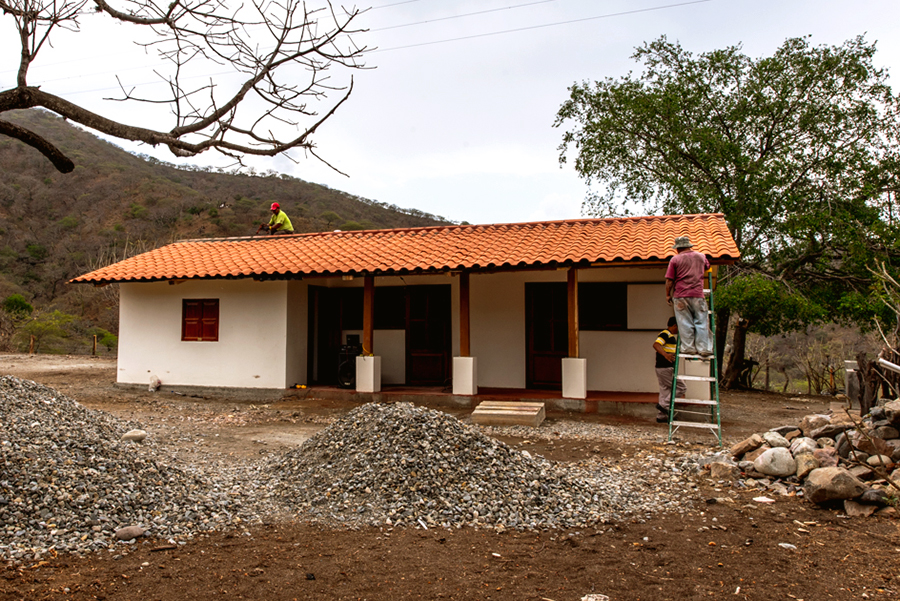
Starting with a blank whiteboard, graduate students and faculty investigated how similar efforts had been conducted worldwide and, in 2010, carried out the first field research to understand the problem of Chagas elimination from the perspective of local stakeholders and the inhabitants of three rural communities in Loja province, who are directly caught up in this intractable problem.
The data collected led to three action lines: Infrastructure, Income Generation and Health. After a conscious research, we discovered that all efforts to eradicate Chagas Disease in Southern Ecuador might be inefficient if we do not face the structural issues that have an impact on the matter.
In a pursuit of fair health conditions for everybody, the idea of modifying the architecture of the homes of those who are at risk of infection came up. The solution is not only ideal, but also targets the three action lines that move this project. By building new Chagas resistant houses, we are changing the structural conditions for infection in southern Ecuador and also setting a foundation for social development and human wellbeing in Loja.
Would you like to be part of the solution? Contact us: cisealpuce@puce.edu.ec
Related links: Combating Chagas in Ecuador
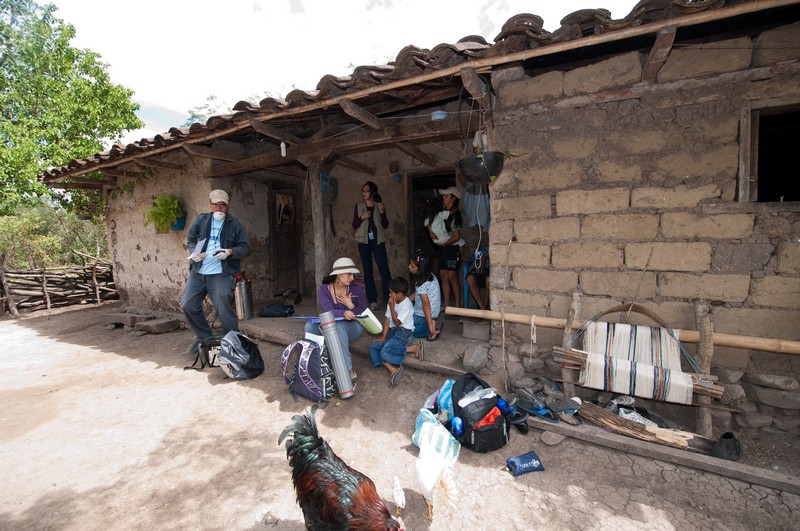

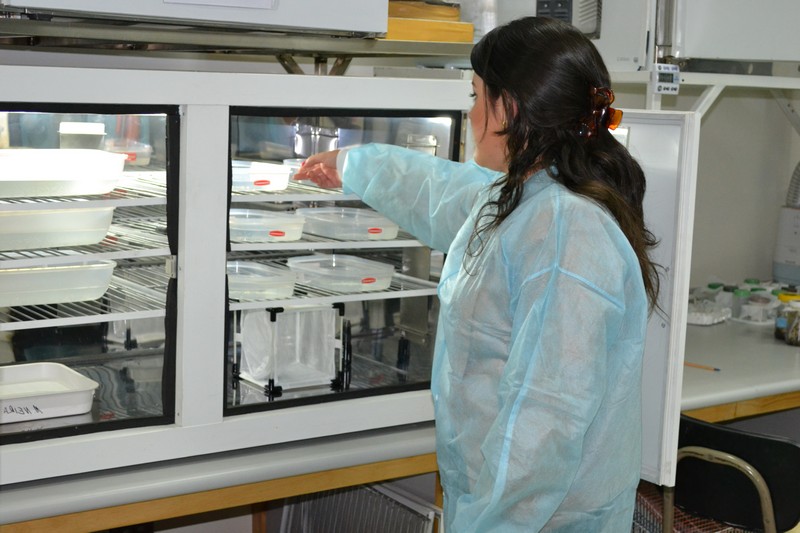

Subcategories
Adjunct Investigators
CISeAL has 15 attached researchers, belonging to the Faculties of Medicine, Nursing, Architecture, Economics, Engineering and Business Administration of the Pontificia Universidad Católica del Ecuador.
Learn more about each of our researchers, their research groups and their lines of research below:
Principal investigators
CISeAL has 14 principal investigators on staff, belonging to the Faculties of Exact and Natural Sciences, Medicine, Nursing and Architecture of the Pontificia Universidad Católica del Ecuador.
Learn more about each of our researchers, their research groups and their lines of research below:
Research groups
CISeAL has 14 research groups that approach health from a range of perspectives and that specialize in the diagnosis, understanding, treatment and public policy of different diseases.
Learn more about the lines of research of each group and its members here:



